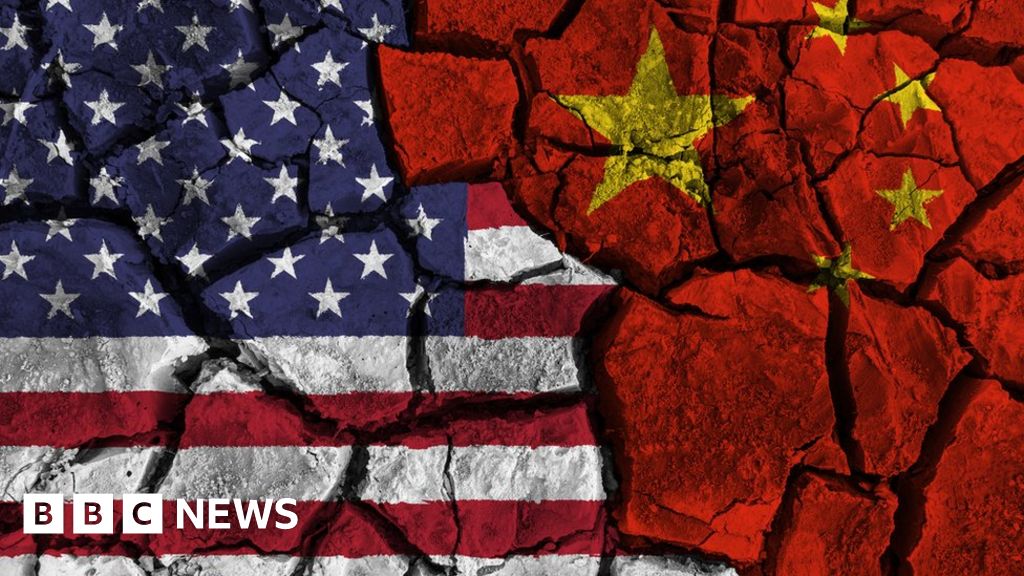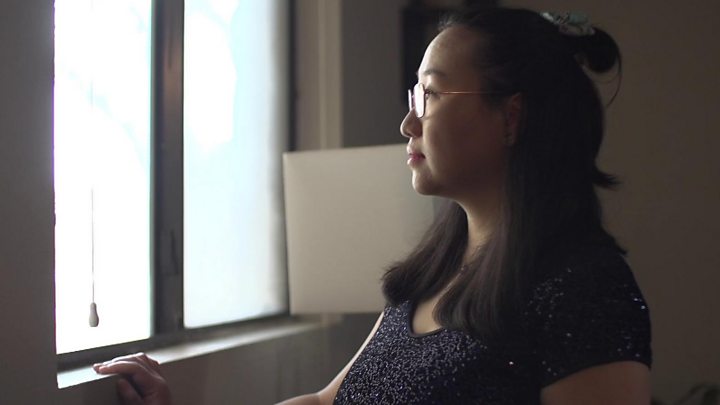
Being a Chinese student in the US: ‘Neither the US nor China wants us’
Stranded abroad by the coronavirus pandemic and squeezed by political tensions, Chinese students in the United States are rethinking their host and home countries.
Eight years ago, Shizheng Tie, then aged 13, moved alone from China to rural Ohio for one sole purpose: education. She once had a budding American dream, but now she says she is facing hostility in that country.
"As a Chinese living in the US, I am very scared now," she says. Tie, now a senior student at Johns Hopkins University, describes America as "anti-China" and "chaotic".
Some 360,000 Chinese students are currently enrolled in schools in the US. In the past months, they have experienced two historical events - a global pandemic and unprecedented tensions between the US and China, which have reshaped their views of the two nations.
'Politicised' and 'anxious'
The majority of Chinese students in the US are self-funded and hope their western education will lead to a good career.
Meanwhile, Washington has warned that not all students from China are "normal", claiming some are Beijing's proxies who conduct economic espionage, orchestrate pro-China views and monitor other Chinese students on American campuses.
The Trump administration recently cancelled visas for 3,000 students they believe have ties to the Chinese military. One US senator even suggested that Chinese nationals should be banned from studying math and science in America.
Amid the harsh rhetoric, many Chinese students fear that they are being turned into a political target for Washington.
Tie, majoring in environmental science, says she is pessimistic about her academic future in the US, given the growing scrutiny over Chinese students and scholars in science and technology.
"I used to think I'd pursue my PhD in the US and perhaps settle down here, but now I see myself returning to China after obtaining a master's degree," Tie says.
Yingyi Ma, associate professor of sociology at Syracuse University, says Chinese students in the US are now "politicised and marginalised at an unprecedented level", as Washington is sending "very unfriendly signals".
The strained bilateral relations have swayed public opinion, as a recent survey found that 73% of American adults have an unfavourable view of China - an historic high.
Prof Ma published a book called Ambitious and Anxious this January, focusing on Chinese students' experience in America.
"If I write the book now, I will only keep 'anxious' in the title," she says.
'Unwanted' at home
As the coronavirus continues to spread in the US, Tie prefers to return to China, where the outbreak appears to be largely under control.
But the country has ordered sharp cuts in international flights to prevent imported cases, leaving many Chinese students overseas, stranded thousands of miles away from their families.
On Chinese social media, some comments portrayed these students as spoiled brats, who had fled from the country's fiercely competitive education system and now may imperil its success in containing the virus.
"America wants to kick us out, while China doesn't allow us to return," Tie says.
- China takes a victory lap over US protests
- US-China contagion: The battle behind the scenes
This sentiment is commonly shared among Chinese students in the US.
Iris Li, a 20-year-old junior student from China at Emory University in Atlanta, describes the students as "being kicked like a ball" between the two countries.
"We are getting the short end of the stick from both sides," Li says.
Racism 'boosts' support for Beijing
After worrying about the outbreak in their home country from afar, these young Chinese are now witnessing the coronavirus crisis in the US.
They were perplexed by the cultural differences regarding mask-wearing. They were unsettled by President Trump's use of the phrases "kung flu" and "China virus". Some have even experienced racial harassment firsthand.

Media playback is unsupported on your device
Racial discrimination during the pandemic has "burst their bubble," Prof Ma says.
A new paper stated that anti-Chinese racism boosts support for Beijing's authoritarian rule among Chinese students in the US.
Jennifer Pan, co-author of the paper and assistant professor of Communications at Stanford University, says there is a general belief that Chinese students overseas are indoctrinated to wholeheartedly support the Chinese Communist Party.
"That's not the case," Prof Pan says, "What does change their political views is racism."
The research found that college freshmen from China who read derogatory comments against Chinese people are more likely to support Beijing, while general criticism against the government's coronavirus handling did not produce the same effects.
Prof Pan says the findings suggest that Chinese students in the US, whose survey responses are "mature, sophisticated and thoughtful for their age", can rationally process criticism against China.
Rethinking China and America
Despite her frustration over China's travel restrictions, Tie says she has become more patriotic since living aboard.
"I had believed America to be a wonderland of dreams, equality and tolerance for all. I certainly don't believe it anymore," she wrote in her school newspaper in June, criticising America's "Sinophobia".
In February, she penned an online petition, protesting against her university hosting a panel with Hong Kong democracy activists.
But Tie says she's not a "little pink", a somewhat disparaging term for nationalistic Chinese youth active on the internet.
"I am patriotic in a rational way, not as a result of brainwashing," Tie says, adding that she views both Washington and Beijing critically, citing the lack of freedom of speech in China.
"Both countries let me down many times," Tie says, "but China is my motherland, so I am more willing to endure that frustration."
Similar to Tie, Li plans to return to China after her study, with transformed understandings of her home and host countries.
- Foreign students in US 'scared for the future'
- Covid fears putting off Chinese students from UK
In early July, Washington announced a policy barring foreign students from staying in the country, but the decision was rescinded after receiving waves of criticism.
"It made me feel hopeful about the US," Li says, "This would not happen in China."
The sociology and religious studies student thinks the pandemic has laid bare the advantages and weaknesses of both political systems. While the Chinese government seems to act more effectively, the US allows dissent, and at times, it is able to correct its own mistakes.
American education has made her "more anti-China," Li says with a laugh.
She recalls feeling "very uncomfortable" when she first arrived in America six years ago and saw her fellow students waving Taiwanese flags, which are seen in mainland China as a symbol for Taiwan independence.
But after getting to know the Taiwanese students, she realised that though their views may have been completely different, they could discuss issues respectfully, which is encouraged in American classrooms.
"Studying in the US is an important experience in my life," one that she says she'd never regret. "But I am eager to help change China, where my work may be more meaningful."








